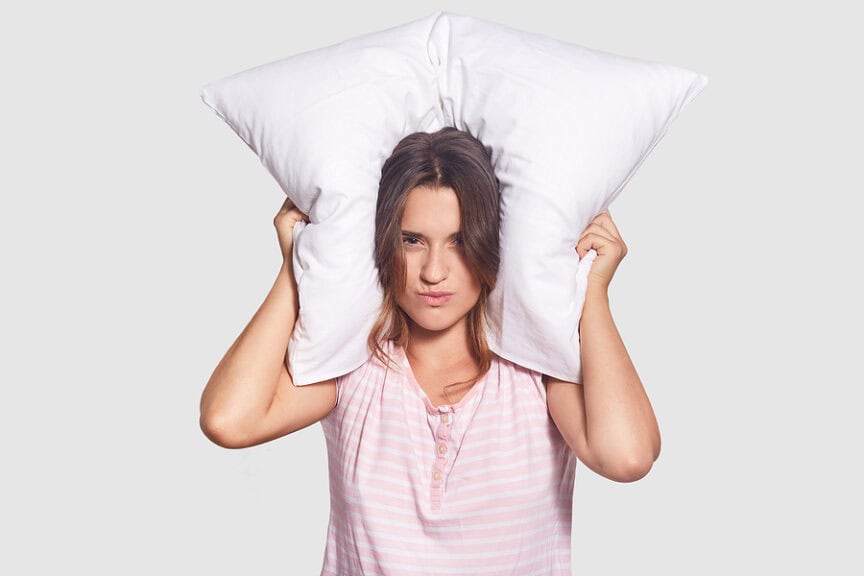Hearing health is often associated with protecting the ears from loud noises or maintaining proper ear hygiene. However, an unexpected yet vital factor that plays a role in auditory wellness is sleep hygiene. Quality sleep affects nearly every aspect of physical and mental health, and hearing is no exception. Prioritizing proper sleep routines can contribute to preserving auditory function and enhancing overall well-being.
Understanding Sleep Hygiene
Sleep hygiene refers to the habits and routines that promote consistent, healthy sleep. It includes factors like sticking to a regular sleep schedule, minimizing distractions in the bedroom, and avoiding stimulants before bedtime. By creating an environment and lifestyle that supports quality sleep, the body can recover, recharge, and operate more effectively.
Adequate sleep is essential for brain function, hormone regulation, and tissue repair. These are all necessary processes that indirectly affect ear health. Poor sleep hygiene, on the other hand, can lead to fatigue, stress, and disruptions in circulation, which may impact how the auditory system works.
How Sleep Supports Auditory Health
Sleep plays a critical role in maintaining the auditory system, particularly through its impact on brain and nerve function. The ears rely on the auditory nerve and brain to interpret sound signals and function properly. Without adequate sleep, these processes can be hindered, potentially leading to hearing challenges over time.
During sleep, the brain clears itself of waste byproducts, strengthens neural pathways, and ensures the smooth functioning of sensory systems. Any interruptions to these processes can affect hearing ability. For instance, chronic sleep deprivation has been linked to tinnitus, persistent ringing or buzzing in the ears that can cause discomfort and impact one’s daily life.
Also, sleep is vital for maintaining proper blood flow. Healthy circulation is essential to support the sensitive structures within the ears. Poor sleep can reduce blood flow to the cochlea, the part of the inner ear responsible for transmitting sound signals to the brain. This shortage of blood flow may compromise hearing and increase the risk of ear-related complications.
Stress and Sleep
Stress and sleep are closely intertwined, and both can influence one’s ear health. When sleep patterns are irregular or insufficient, stress levels often rise. Elevated stress can trigger various health problems, including auditory issues like tinnitus or hyperacusis (abnormal sensitivity to certain sounds).
When the body remains in a constant state of stress due to lack of sleep, the production and regulation of certain hormones, such as cortisol, can disrupt the immune system and sensory processing. Long-term exposure to such stress can negatively affect hearing-related functions.
By focusing on proper sleep hygiene, individuals can help reduce stress, ensure optimal brain function, and protect hearing health in the long run.
Tips for Enhancing Sleep Hygiene
Making intentional changes to sleep routines can lead to more sound sleep and healthier auditory function. Here are a few strategies to consider:
- Stick to a consistent sleep schedule: Going to bed and waking up at the same time each day helps regulate the body’s internal clock.
- Create a restful sleep environment: A cool, quiet, and dark room encourages sleep and minimizes disruptions. Reducing external noise or investing in a white noise machine may help create a calming environment.
- Limit stimulants and electronics before bed: Avoid caffeine, nicotine, and screen time in the hour or two leading up to sleep. Bright lights from devices can interfere with the production of melatonin, the hormone responsible for sleep.
- Wind down with relaxing routines: Activities like meditation, gentle stretching, or reading can help calm the mind and prepare the body for sleep.
- Prioritize movement during the day: Regular exercise has been shown to improve sleep quality, enhance circulation, and reduce stress, all of which support auditory health.
By incorporating these practices into daily routines, individuals may notice improvements in both sleep quality and hearing wellness.
The Bigger Picture
Sleep hygiene is not just about feeling rested. It plays a critical role in overall health, including how well the auditory system performs. By making better sleep a priority, individuals can promote stronger sensory functions, enhance cognitive processing, and potentially reduce the risk of hearing complications in the future.
Although hearing health may not immediately come to mind when addressing sleep hygiene, the connection is undeniable. Even small, consistent changes to sleep habits can make a significant difference in protecting and preserving auditory function. Treating sleep as an essential part of wellness encourages the body to function better as a whole, including its ability to hear and interpret the many sounds of life.

